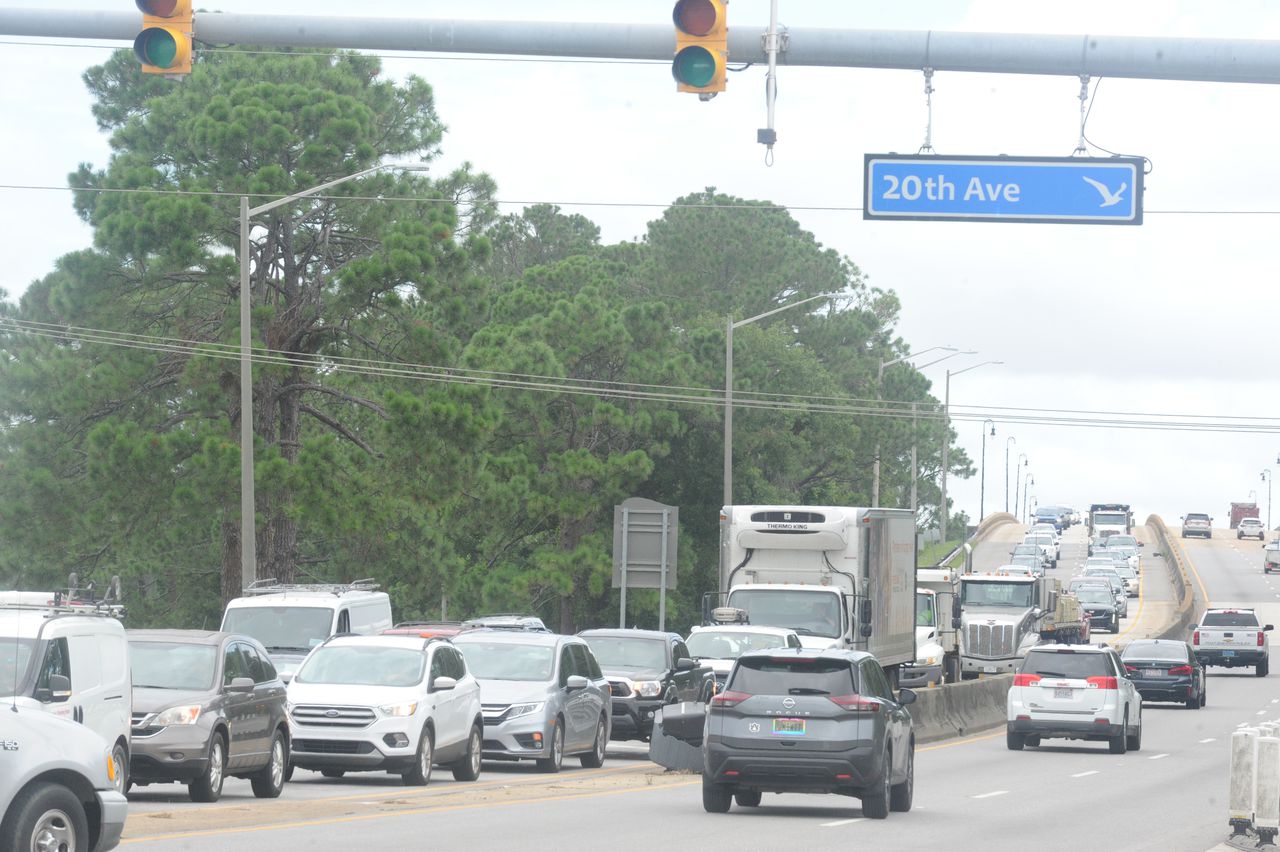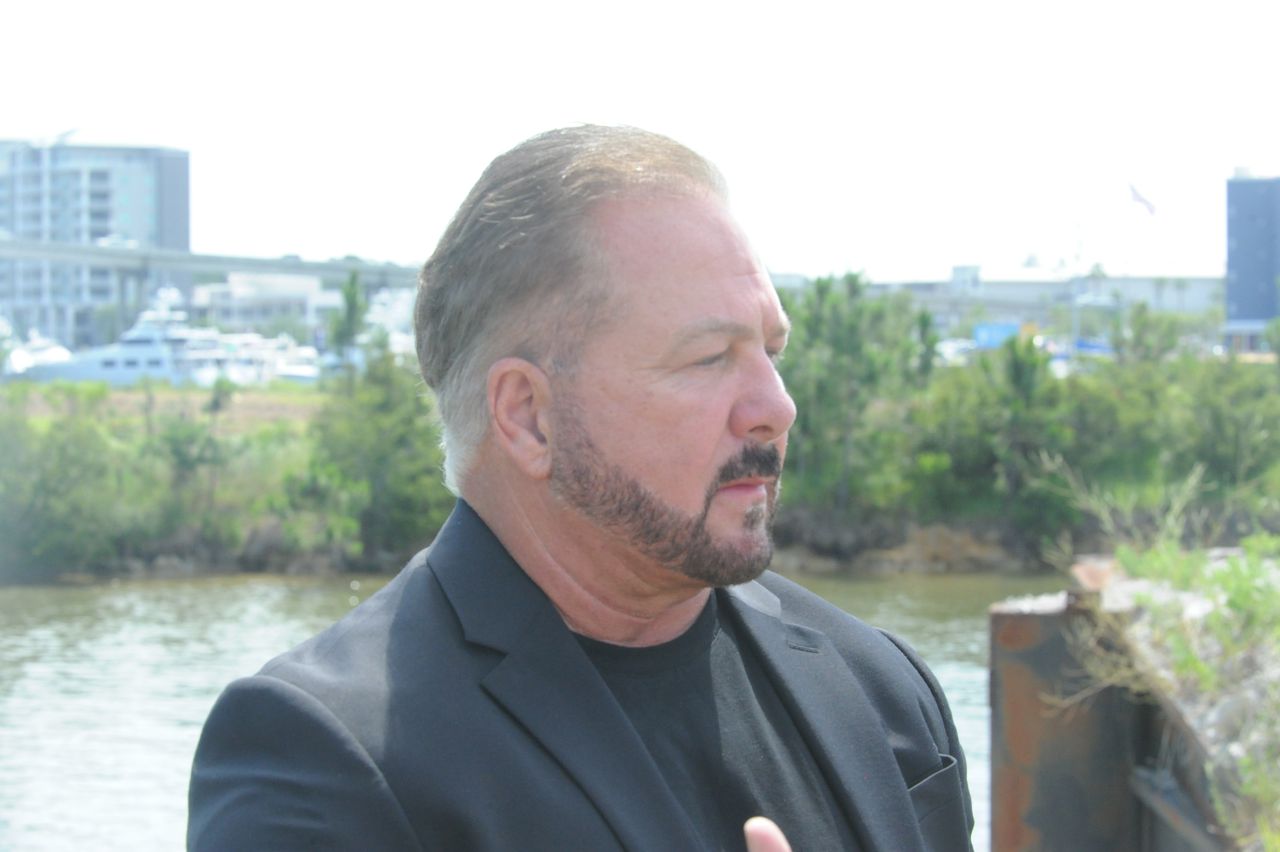Officials signal start for new bridge to Alabama’s beaches
The construction of a new two-lane bridge over the Intracoastal Waterway is set to begin on October 27, despite lingering concerns from opponents that the project will not adequately move traffic off Alabama’s beaches.
The Alabama Department of Transportation, in an announcement Tuesday, confirmed that the state issued a “notice to proceed” with Opelika-based Scott Bridge Company. A provision within the notice signifies that the project is to begin next week, and deadline for completion is January 1, 2026.
Related stories:
The contract amount is $51.85 million, which was the lowest among the companies submitting proposals to build the new bridge. The state set an estimated $48 million to $60 million price range to build the new bridge, which will be the third bridge leading visitors onto and off Alabama’s Pleasure Island area of Gulf Shores and Orange Beach.
The other two are the W.C. Holmes Memorial Bridge (Alabama State Route 59), and the toll bridge connecting the Foley Beach Express to Canal Road (Alabama State Route 180).
“The (new) bridge, which will be owned by the people of Alabama, will absolutely help relieve traffic congestion for residents and visitors as well as provide an additional evacuation route,” said Tony Harris, spokesman with ALDOT.
The announcement was made during Monday’s Gulf Shores City Council meeting when Mayor Robert Craft confirmed, through a conversation he had with ALDOT Director John Cooper earlier in the day, that the project was set to start.
“The contract has been fully executed and a notice to proceed has been given so the bridge will be built,” Craft said. “That’s as definitive as I’ve seen.”
Craft’s comments drew an applause.
“I feel this entire island needs a better way on and off (of it),” he said.
‘Adversaries’
Orange Beach Mayor Tony Kennon speaks to the media on Wednesday, June 16, 2021. (John Sharp/[email protected]).
But Craft also acknowledged that the project has “adversaries,” though he did not name them during his comments.
Orange Beach Mayor Tony Kennon is among them. He called the project a “boondoggle” earlier this month, and believes the two-lane bridge is not the answer toward moving traffic off Alabama State Route 59 in Gulf Shores.
Kennon, late Tuesday, told AL.com that “pretty much what needs to be said has already been said. We will wait and see the outcome.”
Harris said that ALDOT plans to “continue our dialogue with local officials” as the project moves forward “and will do everything possible to maximize the benefits this new bridge will bring to all the people of Alabama’s coastal communities.”
Another opponent is the Baldwin Beach Express Company, which owns and operates a private toll bridge in Orange Beach.
The Company did not provide a reaction on Tuesday.
The Bridge Company, for over a year, had been negotiating with ALDOT for additional lanes on their bridge only if the new bridge over the Intracoastal Waterway was not built.
The negotiations lasted until September 1, when ALDOT announced it was opening bids and moving forward with the Intracoastal Waterway bridge project.
The Bridge Company, in August, pitched a proposal to build an additional bridge span on the toll bridge along with additional roadway improvements and signage improvements, construct an expanded toll plaza with multiple lanes, as well as other infrastructure improvements.
As part of that plan, the Company agreed to removal all tolls assessed on Baldwin County residents. Most bridge users are assessed a $2.75 one-way toll.
Neil Belitsky, an executive with the Bridge Company, argued earlier this month that the state’s plan to build a new bridge from Canal Road to Cotton Creek Drive north of the new Intracoastal Waterway “will do nothing to reduce congestion on inbound highways.” He also said that it will be local residents who will “pay the prices for ALDOT’s poor decision.”
Others in the county are angling for ALDOT to utilize the bridge money to connect the Beach Express from Interstate 10 near Loxley north to Interstate 65. But that project would cost considerably more than the bridge project, and ALDOT has never indicated it would reappropriate the bridge funding for another Baldwin County project.
‘Dangerous situation’

Congestion builds on southbound Alabama State Route 59 from the W.C. Holmes Bridge in Gulf Shores, Ala., in this July 2021 photo. (John Sharp/[email protected]).
ALDOT has also been working on the Intracoastal Bridge project for years, and the latest town hall meetings for it were held in 2018.
The state spent $20 million in acquiring property to prepare for the project. In 2021, the city of Gulf Shores conveyed approximately 26.4 acres of public right of way to ALDOT for the construction of a new roadway that would connect to Route 181 in Gulf Shores from the new bridge to the Beach Express.
Cooper, during an interview with AL.com in 2018, described the growing traffic congestion in coastal Alabama as a “dangerous situation.” He said that summer traffic conditions and congestion on Route 59 prevented access to the nearest hospital at South Baldwin Regional Medical Center in Foley.
Though Gulf Shores has since opened a free-standing emergency room, the closest hospital is about 12 miles or more from the beaches. The trip can be treacherous on weekends as tens of thousands of visitors converge upon or leave the Gulf Coast, which is – by far – Alabama’s most popular tourism destination.
Harris, in his comments on Tuesday, said the new bridge will address Cooper’s concerns from several years ago.
The new bridge, he said, will do the following:
- Add extra capacity to relieve traffic off Route 59
- Provide new infrastructure critical to the continued growth and success of Baldwin County’s tourism industry.
- Provide another safe evacuation route.
- Offer a faster alternative t get to the hospital in Foley.
Said Harris, “ALDOT hopes that this work will be completed as quickly as possible. Any delay will only exacerbate the traffic problems on the Gulf Coast.”
